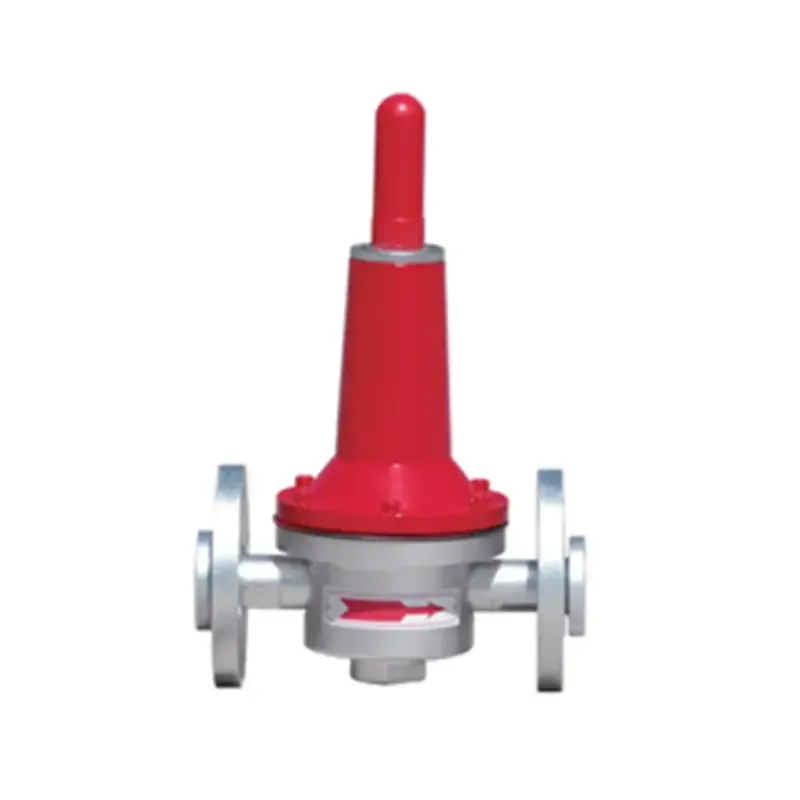
Dec . 04, 2024 10:38
Back to list
natural gas valve
Understanding Natural Gas Valves A Key Component in Energy Management
Natural gas plays a crucial role in powering our homes, industries, and vehicles, making it an essential component of modern energy management. Among the various elements that ensure the safe and efficient use of natural gas, gas valves stand out as vital components. By controlling the flow and pressure of natural gas, these valves play a significant role in safety, functionality, and efficiency.
What is a Natural Gas Valve?
A natural gas valve is a device used to regulate or control the flow of natural gas in pipelines, storage systems, and combustion applications. These valves come in various types, including ball valves, gate valves, globe valves, and safety relief valves. Each type has its specific applications and advantages, depending on the requirements of the gas distribution or utilization system.
Types of Natural Gas Valves
1. Ball Valves Known for their durability and reliability, ball valves utilize a spherical disc to control flow. When the ball's hole is aligned with the flow, the valve is open; when the ball is turned perpendicular to the flow, the valve is closed. This simplicity makes ball valves popular in gas applications where fast shut-off is crucial.
2. Gate Valves These valves are designed for on/off control rather than flow regulation. They use a wedge-shaped disc to block or allow the gas to flow. Gate valves are favored for their low resistance to flow, making them ideal for situations where a straight-line flow of gas is required.
3. Globe Valves Unlike gate valves, globe valves are effective for regulating flow. Their design allows for fine-tuning of the flow rate, which can be very useful in complex gas distribution systems. However, globe valves generally have higher pressure drops due to their flow restriction characteristics.
4. Safety Relief Valves These valves are crucial for maintaining system safety. They automatically relieve excess pressure from a gas system by venting gas to the atmosphere, protecting equipment and preventing potential explosions or gas leaks.
Importance of Gas Valves in Safety and Efficiency
natural gas valve

The importance of natural gas valves cannot be overstated. These devices are integral to ensuring that systems operate safely and efficiently. In a gas distribution network, valves are used to control the pressure and flow rate of natural gas, which helps to optimize delivery to consumers while minimizing the risk of leaks or ruptures.
Safety Considerations
Natural gas is highly flammable, making safety a primary concern. Proper valve selection and maintenance are essential to prevent accidents. Regular inspections and testing of valves and associated equipment help identify potential failures before they lead to serious incidents.
Additionally, safety relief valves are designed to prevent overpressure situations, which can be catastrophic. These valves act as the last line of defense, triggering when pressure exceeds pre-set levels, thereby safeguarding pipelines and other equipment.
Automation and Control
In modern gas systems, automation plays a crucial role in optimizing valve operation. Automated control systems can monitor gas flow, pressure, and temperature in real-time, allowing operators to make adjustments swiftly or set pre-defined parameters for automated responses. This not only enhances safety but also improves operational efficiency, reducing waste and limiting the environmental impact.
Conclusion
As the world continues to rely heavily on natural gas, the significance of gas valves in both residential and industrial settings cannot be overlooked. These devices are the unsung heroes of gas distribution and utilization systems, ensuring safety, efficiency, and reliability.
Investing in high-quality valves and implementing routine maintenance and inspection protocols are essential steps that operators must take to maintain system integrity. Furthermore, with the continued advancement in technology and automation, the future of natural gas management looks promising, potentially leading to safer and more efficient energy solutions.
In summary, natural gas valves are more than just components; they are critical elements that underpin the successful and safe use of natural gas in our everyday lives. Ensuring their proper use and maintenance is essential for the ongoing reliability of natural gas infrastructures worldwide.
Latest news
-
Safety Valve Spring-Loaded Design Overpressure ProtectionNewsJul.25,2025
-
Precision Voltage Regulator AC5 Accuracy Grade PerformanceNewsJul.25,2025
-
Natural Gas Pressure Regulating Skid Industrial Pipeline ApplicationsNewsJul.25,2025
-
Natural Gas Filter Stainless Steel Mesh Element DesignNewsJul.25,2025
-
Gas Pressure Regulator Valve Direct-Acting Spring-Loaded DesignNewsJul.25,2025
-
Decompression Equipment Multi-Stage Heat Exchange System DesignNewsJul.25,2025

